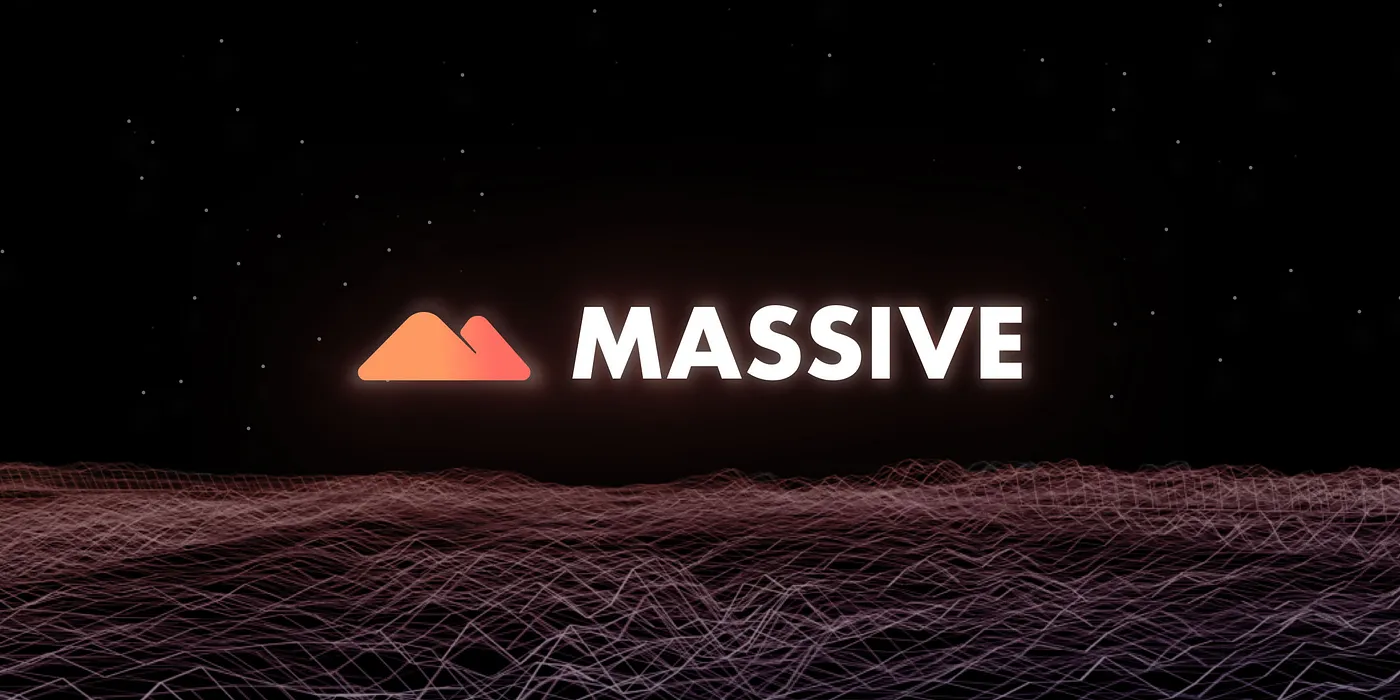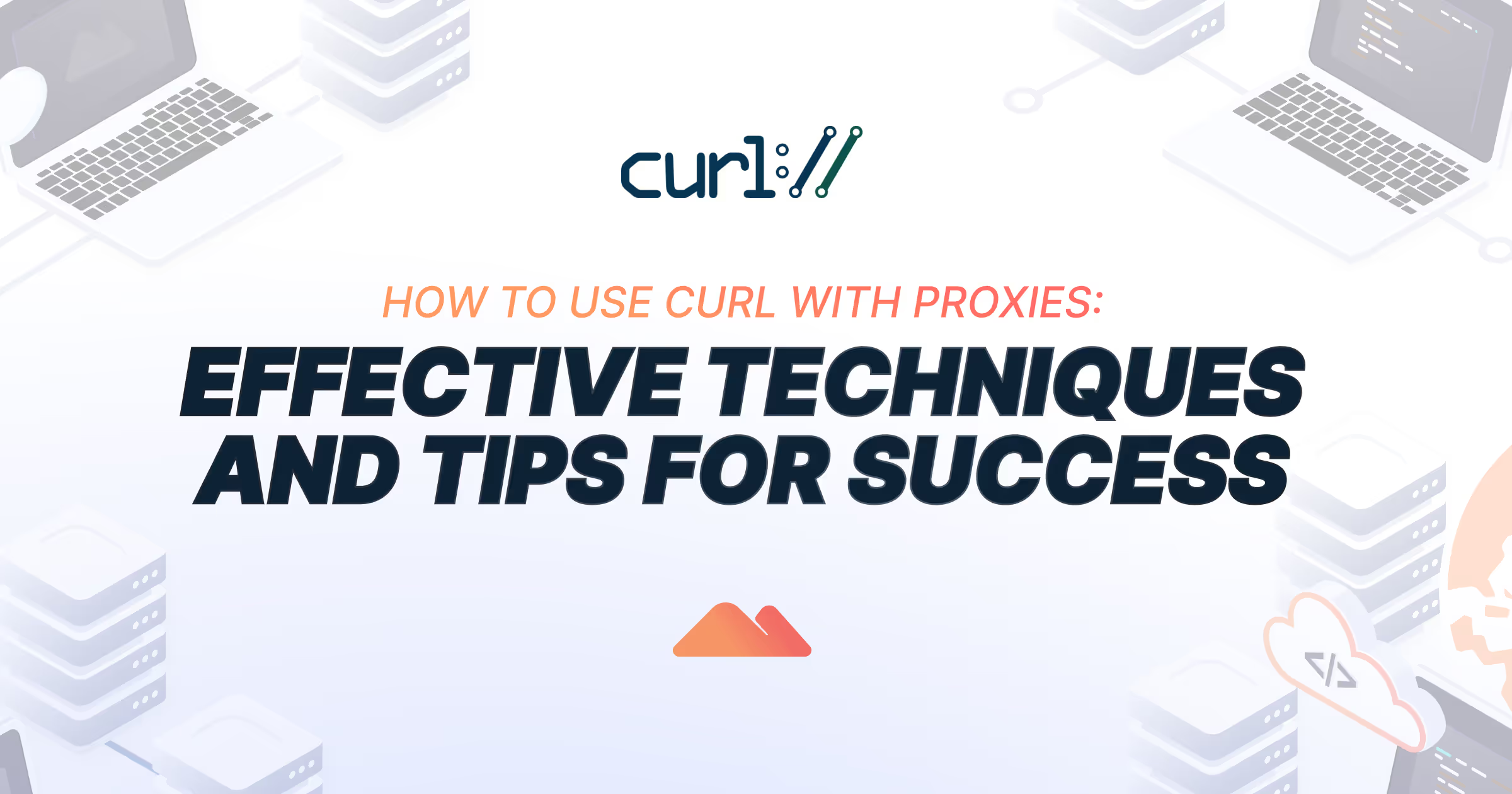Effective web scraping begins with choosing the right proxy. The right proxy ensures your scraping activities remain undetected, reliable, and efficient. This guide will help you understand the importance of selecting the best web scraping proxies, providing insights into various types of proxies, their benefits, and how they can enhance your scraping efforts. Whether you're new to web scraping or looking to optimize your current setup, this guide has you covered.
What is Web Scraping?

Web scraping is the automated process of extracting large volumes of data from websites. It involves using specialized tools and software to access website content and convert it into a structured format, such as a spreadsheet, Google Sheets, or database. This process bypasses manual copying and pasting, making data collection faster, more efficient, and scalable.
Importance of Web Scraping in Various Industries
In 2024, the importance of web scraping continues growing as businesses and researchers seek to harness the vast amounts of data available online. This data is crucial for market research, competitive analysis, price monitoring, and more. Additionally, web scraping plays a significant role in feeding data into machine learning models, enhancing their accuracy and effectiveness. Here’s a closer look at its importance in different industries:
Market Research and Price Intelligence
Web scraping allows businesses to gain precise insights into market trends, consumer behavior, and competitive pricing. For instance, e-commerce companies use web scraping to monitor competitor prices, track stock levels, and analyze customer reviews. By regularly scraping competitors' websites, businesses can adjust their prices to remain competitive, understand the availability of competitor products for informed inventory decisions, and gather customer feedback for product improvements.
Alternative Data for Finance and Real Estate
Investors and real estate professionals use web scraping to collect alternative data that isn't typically available through traditional financial reports. This includes social media sentiment analysis, news scraping, and property listings. By scraping social media platforms, investors can gauge public sentiment towards a company or asset, gather news articles to stay informed about market-moving events and scrape real estate websites for property listings and trends to identify lucrative opportunities and make data-driven decisions.
News and Content Monitoring
Media organizations benefit from web scraping by tracking news stories and monitoring trends. Scraping news websites and blogs allows media companies to stay on top of breaking stories and trending topics, ensuring timely and relevant coverage.
Brand Monitoring
Companies can monitor their brand's online reputation by scraping reviews, social media mentions, and news articles. This enables them to respond quickly to negative feedback and manage their brand image effectively.
Lead Generation
Marketing firms use web scraping to generate leads. By scraping business directories and social media profiles, they can collect contact information and generate new leads for their marketing campaigns.
SEO Optimization
SEO professionals leverage web scraping to optimize their strategies and improve online visibility. By scraping search engine results and competitor websites, they can identify valuable keywords to target, analyze competitor content to understand resonating topics, and monitor backlink data to find high-quality link-building opportunities. This helps enhance SEO efforts, create effective content strategies, and boost search engine rankings.
Aid in Machine Learning
Machine learning models require vast amounts of data to train effectively. Web scraping provides a scalable solution to gather this data, enabling the development of advanced models for predictive analytics, natural language processing, and other AI applications.

Web Scraping Methods and Tools
Manual Copy-and-Paste vs. Automated Web Scraping
The simplest form of web scraping is manually copying and pasting data from a web page into a text file or spreadsheet. However, this method is time-consuming and not scalable. Automated web scraping using specialized tools is far more efficient and can handle large volumes of data.
Here are some popular web scraping tools and their applications:
- Beautiful Soup: A Python library for parsing HTML and XML documents. It is ideal for beginners due to its simplicity and ease of use.
- Scrapy: An open-source web scraping framework for Python. It is powerful and flexible, suitable for complex scraping projects.
- Selenium: A browser automation tool that can be used for web scraping. It is useful for scraping dynamic content generated by JavaScript.
The Role of Crawlers and Web Scrapers
Crawlers and scrapers work together in the web scraping process. A web crawler, also known as a "spider," browses the Internet to index and search for content by following links and exploring. A web scraper is a specialized tool designed to extract data from a web page accurately and quickly.
Do-It-Yourself Web Scraping Using a Web Data Extraction Tool
To perform web scraping manually using tools, follow these steps:
- Identify the Target Website: Determine which data from a website you want to scrape data from.
- Collect URLs of the Target Pages: Gather the URLs of the web pages you wish to scrape.
- Make a Request to These URLs: Send HTTP requests to the collected URLs to retrieve the HTML content.
- Use Locators to Find Information in the HTML: Use HTML parsing techniques to locate the data you need within the HTML structure.
- Save the Data: Store the extracted data in a structured format, such as JSON or CSV files.
Why Use Proxies for Web Scraping?
While web scraping can significantly boost your data-driven projects or business strategies, it comes with challenges such as IP blocking, rate limiting, and data access restrictions. Using a proxy can help overcome these obstacles. Here’s why:
Avoid IP Blocking
When web scraping, multiple requests from the same IP address can lead to the IP being blocked by the target website. Proxies help mitigate this by masking the scraper's IP address and rotating it among a pool of different IPs. This makes it appear as if the requests are coming from multiple users, reducing the risk of detection and blocking.
Bypass Rate Limits
Many websites implement rate limiting to restrict the number of requests from a single IP address within a certain timeframe. Using proxies allows you to distribute your requests across multiple IPs, effectively bypassing these rate limits. This enables you to scrape data at a higher volume and speed without hitting restrictions.
Access Geo-Restrictions
Certain websites provide different content based on the user's geographic location. Proxies can help you overcome these geo-restrictions by allowing you to choose IPs from different locations. This enables you to scrape region-specific data that would otherwise be inaccessible.
Enhance Anonymity
Proxies add an extra layer of anonymity and help preserve your IP reputation. By masking your real IP address, proxies make it harder for websites to trace the origin of the requests. This is particularly useful for competitive intelligence and market research.
Manage Large-Scale Scraping Operations
Proxies facilitate load balancing by distributing requests across multiple IP addresses. This not only improves scraping efficiency but also ensures that your activities remain under the radar, minimizing the risk of IP bans.
Overcome Anti-Scraping Measures
Websites employ various anti-scraping measures, such as CAPTCHAs and JavaScript-based content generation. Proxies, especially residential proxies, help in overcoming these measures by mimicking genuine user behavior.
Ensure Reliability and Continuity
For time-sensitive projects, using proxies ensures that your web data extraction operations remain reliable and continuous. In case one IP gets blocked or restricted, proxies automatically switch to a different IP, maintaining the flow of data extraction without interruptions.
If you're very serious with your data scraping projects, employing a proxy is non-negotiable!
Types of Proxies for Web Scraping
Web scraping proxies can be categorized into four main types. In this section, we will explore each category in detail, examining their features, advantages, and disadvantages.
Datacenter Proxies
Datacenter proxies are generated from proxy servers located in a datacenter. For those unfamiliar, a datacenter is a facility that houses servers, computer systems, and networking equipment for data storage and processing.
These proxies provide IP addresses that are not linked to Internet Service Providers (ISPs) or real residential devices, making them appear more suspicious than traditional IP addresses and easier to identify and blacklist. As a result, they are best suited for extracting data from a website that do not have stringent anti-scraping measures in place.
Datacenter proxies can be divided into:
- Shared Datacenter Proxies - Multiple users share the same IP address.
- Dedicated Datacenter Proxies - Exclusive IP addresses for a single user.

Pros of using Datacenter Proxies:
- Speed: Offer fast and reliable connections.
- Cost: Generally more affordable than other proxy types.
- Availability: Easy to scale up by purchasing more proxies as needed.
Cons of using Datacenter Proxies:
- Detection Risk: Easier to detect and block since they do not originate from ISPs.
- IP Reputation: Shared IP addresses may carry a higher risk of being flagged
Residential Proxies
Web scraping residential proxies are equipped with ISP-registered IP addresses sourced from genuine residential devices like household computers and smartphones. These proxies reroute data scraping requests through authentic residential connections, making the requests appear as if they are coming from real users in a specific region or area to the target websites.
This attribute makes residential proxies a very good choice for scraping activities that demand a high success rate and a certain level of anonymity. They are particularly effective for accessing pages protected by IP-based anti-scraping measures. Additionally, residential proxies are utilized for ad verification and accessing geo-restricted content.
Categories of residential proxies:
- Rotating - These proxies change the IP address with each request or after a set period.
- Sticky - These proxies maintain the same IP address for a longer duration.
Pros of using Residential Proxies:
- Anonymity: Highly anonymous, making it difficult for websites to detect scraping.
- IP Rotation: Frequent IP changes reduce the risk of detection and blocking.
- Geo-targeting: Ability to choose specific geographic locations.
Cons of using Residential Proxies:
- Cost: More expensive compared to datacenter proxies.
- Speed: Slower than datacenter proxies due to routing through residential connections.
ISP Proxies
ISP proxies, also known as residential static proxies, offer static IPs assigned to Internet Service Providers (ISPs) but originating from servers in datacenters. This unique setup combines the speed and reliability of datacenter proxies with the trust level of residential proxies, making them harder to detect and block.
These proxies rely on the ISP's network rather than end-user connections, resulting in faster speeds compared to residential proxies. They provide dependable static IPs, making them suitable for long-term use. However, acquiring ISP-compliant IPs is challenging, leading to a smaller pool of available IPs compared to residential proxies.
ISP proxies are excellent for accessing region-restricted websites and collecting information from sites with strict IP-based security measures. They are commonly used by SEO professionals to track search engine rankings from various global locations. Additionally, businesses use them to collect market data from diverse regions or to oversee social media activities on a global scale.
Pros of using ISP Proxies:
- Speed: Faster than residential proxies due to data center infrastructure.
- Anonymity: Higher anonymity than datacenter proxies, harder to detect and block.
- Stability: More stable and reliable connections.
- Trust: More trusted than datacenter proxies because they are associated with ISPs.
Cons of using ISP Proxies:
- IP Rotation: No IP rotation as they only provide static IPs.
- Limited IP Pool: Few IPs to choose from, and they are only available in a small selection of countries.
Mobile Proxies
Mobile proxies use IP addresses assigned by mobile carriers, routing web scraping requests through devices connected to 3G, 4G, and 5G networks. These proxies offer high levels of anonymity and legitimacy, making them difficult to detect as they appear to originate from actual mobile users.
They are particularly effective for managing interactions with social media platforms such as Facebook, Threads, and Instagram. By utilizing genuine mobile IPs, you encounter fewer blocks and verification requests. Mobile proxies are also excellent for bypassing stringent anti-scraping measures and accessing geo-restricted content, making them ideal for tasks requiring high trust and anonymity.
Pros of using Mobile Proxies:
- Anonymity: Extremely hard to detect due to mobile carrier IP addresses.
- Authenticity: Highly authentic IP addresses, useful for bypassing blocks and authentication requests on mobile-centric websites.
- Mobile Testing: An excellent resource for conducting mobile testing.
Cons of using Mobile Proxies:
- Cost: The most expensive type of proxy.
- Speed: Slower connection speeds due to mobile network routing.
- Availability: Limited availability, harder to acquire in large quantities.
Legal and Ethical Considerations
When engaging in web scraping, it’s important to adhere to legal and ethical guidelines to avoid potential issues.
- It is generally legal as long as you are extracting publicly available data. Always respect a website’s terms of service and acceptable use policies.
- Before scraping a website, review its acceptable use policy to ensure that your activities are compliant. Some websites explicitly prohibit scraping, and violating these policies can lead to legal consequences.
- Avoid scraping data that is protected by intellectual property laws. This includes copyrighted content, personal data, and proprietary information.
If you want to learn more on legal and ethical considerations, we have a dedicated article on ethical web scraping.

Choosing the Right Web Scraping Proxy
When choosing the right scraping proxy for your project, consider your specific needs, including required speed, level of anonymity, scalability, and budget. Assess whether you need location-specific IPs and take into account the anti-scraping measures of the target website and the type of data you plan to extract.
Next, find a trustworthy proxy service provider. With many options available, read our guide for selecting the best provider. Always test the proxy servers, especially the types you need. Avoid providers that don't offer a free trial or refund policy. Ensure the provider aligns with your project's requirements to avoid vendor lock-in and switching costs, ensuring you choose the best web scraping proxies available.
Conclusion
Web scraping is an efficient and useful way to extract data from websites and begins with choosing the right proxy to ensure your activities remain undetected, reliable, and efficient. By understanding the features, pros, and cons of datacenter, residential, ISP, and mobile proxies, you can select the best proxy type to meet your specific needs. Testing and selecting a trustworthy proxy service provider is crucial to avoid vendor lock-in and ensure optimal performance. With the right proxy, you can enhance your data collection efforts and achieve your business objectives seamlessly.

I am the co-founder & CEO of Massive. In addition to working on startups, I am a musician, athlete, mentor, event host, and volunteer.







